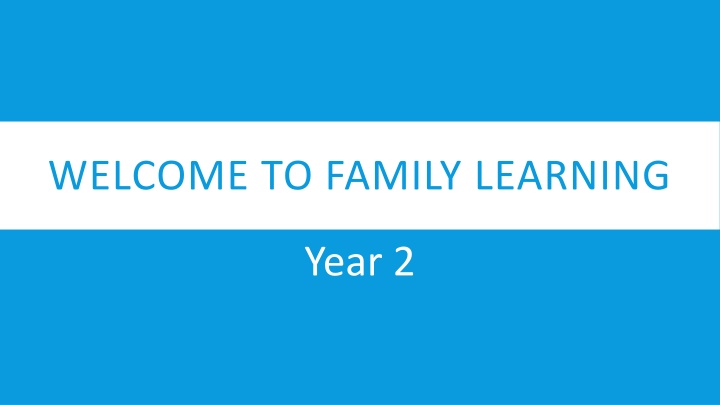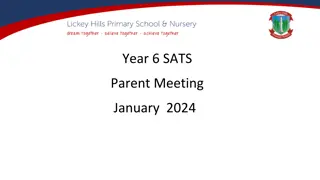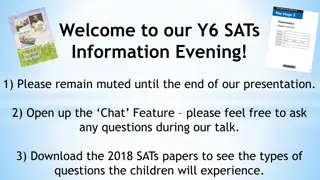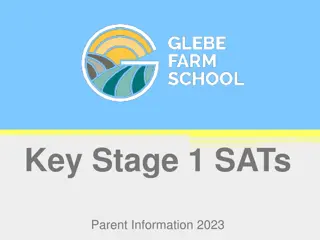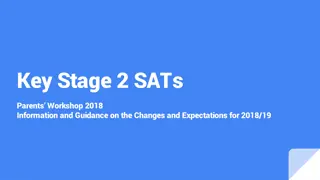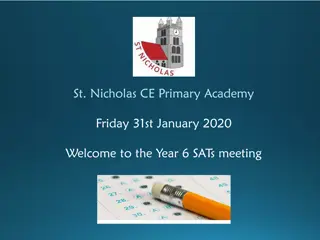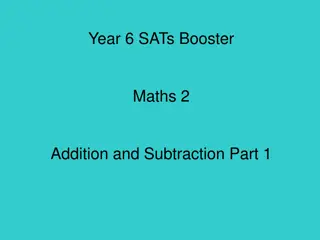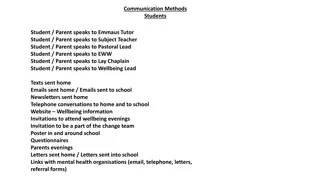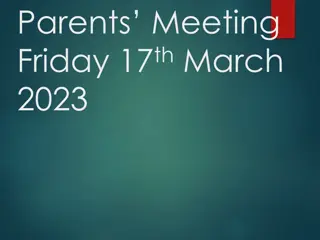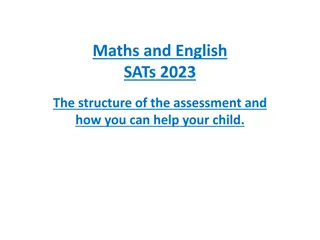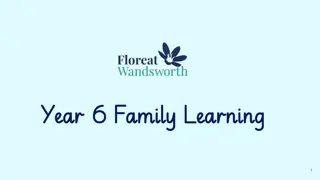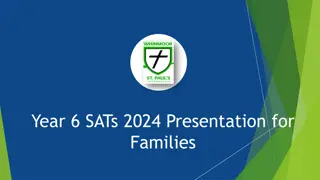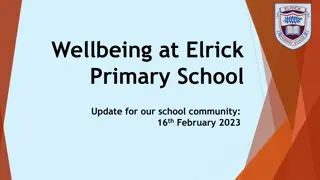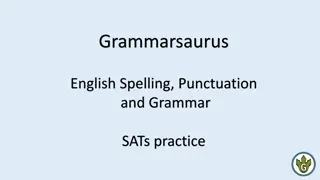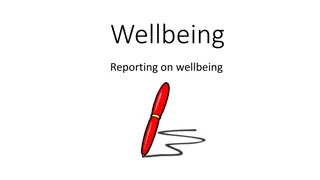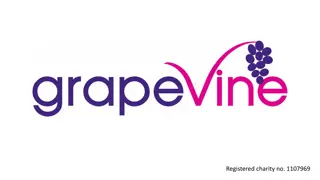Introduction to SATs and Wellbeing at Floreat: What Parents Should Know
SATs are standard assessment tests for Year 2 and 6 students in England, evaluating Reading, Maths, and English abilities. Floreat school prioritizes student wellbeing during SATs with a positive approach. The exams involve various papers, and support is available for children facing challenges in specific curriculum areas.
Uploaded on Mar 01, 2025 | 2 Views
Download Presentation

Please find below an Image/Link to download the presentation.
The content on the website is provided AS IS for your information and personal use only. It may not be sold, licensed, or shared on other websites without obtaining consent from the author.If you encounter any issues during the download, it is possible that the publisher has removed the file from their server.
You are allowed to download the files provided on this website for personal or commercial use, subject to the condition that they are used lawfully. All files are the property of their respective owners.
The content on the website is provided AS IS for your information and personal use only. It may not be sold, licensed, or shared on other websites without obtaining consent from the author.
E N D
Presentation Transcript
WELCOME TO FAMILY LEARNING Year 2
What today is about: Introduce SATS When will they take place? What will SATS look like for my child? What papers will my child sit? What if my child is finding some areas of the curriculum challenging? How should we prepare the children for SATS? How can we solve SATS questions? Activities & practice with our children.
Introduction to SATS: What are SATS? SATs are standardised assessment tests administered by primary schools in England to children in Year 2 and Year 6 to check their educational progress. There are six papers in total which will assess your child s ability in Reading, Maths and English. This will also assess the quality of teaching and learning at our school.
Wellbeing at Floreat: How do we ensure the well-being of children at Floreat is being kept ? The children have sat the SATS papers before and really enjoy them! We don t use the word test or exam , instead we use: challenge and phrases such like it s your time to show us what you can do. If a child becomes upset, we will give them a short break or take them out of the test.
When will they take place & what will it look like for my child? The SATS will take place over the period of a week and will be held in May. Your child will sit 6 papers in total. They will complete each test, usually lasting from 15 minutes to 1 hour, depending on the test. They have sat mock tests many times and are very familiar with what this looks like and the set-up of each test.
What papers will my child sit? Your children will sit the following papers: English Paper 1: Spelling English Paper 2: Spelling, punctuation and grammar Reading Paper 1 Reading Paper 2 Maths Paper 1: Arithmetic Maths Paper 2: Reasoning
What if my child is finding some areas of the curriculum challenging? Currently, we have SATS booster groups in place for each test type. These take place each afternoon with a teacher or teaching assistant. We have focus groups during lessons which enables us to work on a specific skill with a small group of children at a time. Extra morning reading support. Further support at home with extra work from the day or communication with the class teacher on a particular subject their child is struggling with.
How should we prepare the children for SATS? Each week we will be sending home personalised packs to help your child achieve in areas that they are currently struggling with. When the children complete this pack, do let them complete it independently first. Then, go through the questions with them at the end. Within this pack, there will be the following question types: SPAG questions, reading questions, maths questions and spellings. We are going to start these packs as of tomorrow (Friday 4th March). The spellings will be set which contain words that Year 2 will be expected to know at the end of the year. This includes words with suffixes, prefixes, common exception words and homophones. Home support is crucial for a child s success. Communication is key. Communicate with the class teacher if your child is finding a particular task challenging because your class teacher will input this into booster groups and lesson starters.
Quick fix maths activities to get started at home: There are other quick fix maths activities you could do, such as: Teaching your child to tell the time. Playing shop with your child and exposing them to coins and notes. Things to note: We tell the time as 5 minute intervals, for example, 5 past 9 or 20 past 8. We avoid telling the time like this: 8:20 or 4:45 as children are not expected to know this at KS1. We select a variety of coins and notes, but we don t use the
What do SATS questions look like? Example of arithmetic questions
What do SATS questions look like? Example of reasoning questions
What do SATS questions look like? Example of SPAG questions
What do SATS questions look like? Example of Spelling questions
What do SATS questions look like? Example of Reading 1 questions In reading: paper 1 , the children will have a piece of text that they will need to read and then they must answer the questions underneath. A top tip would be to circle the key words from the question, then search the text. Always read the questions first.
What do SATS questions look like? Example of Reading 2 questions During this test, the children will have a reading booklet and a separate booklet with questions inside. Some children find this challenging to move between the two papers. Our top tip would be: when you are reading with your child, write down some questions for them to answer at the end. They can have their reading book and questions and flick between the two, which will enable them to practise this skill.
Activities & Practice 4 houses/4 tables On your tables there are different tables for each paper. There is a SPAG table (Spelling and punctuation and grammar), a reading comprehension table, an arithmetic table and reasoning table. Do let your children have a go at these questions independently first. After they have completed their first question, you can run through the answer and discuss how they know, or show them how to solve a particular question. We will be circulating around the room to take any questions you may have.
